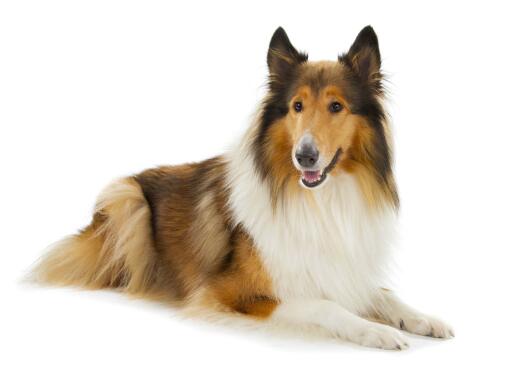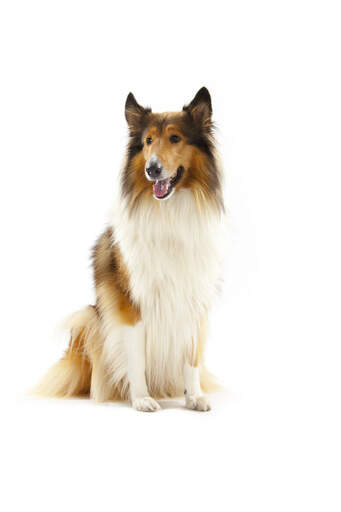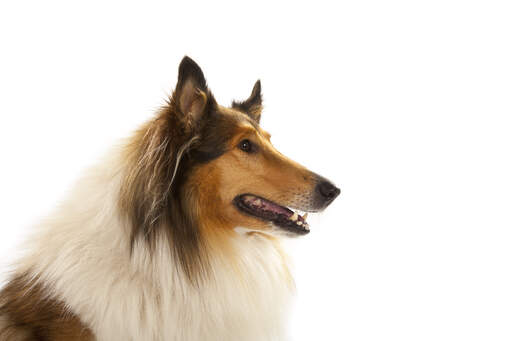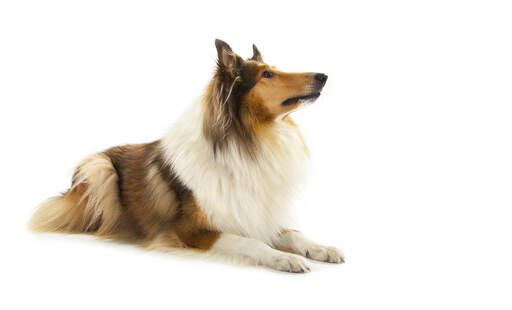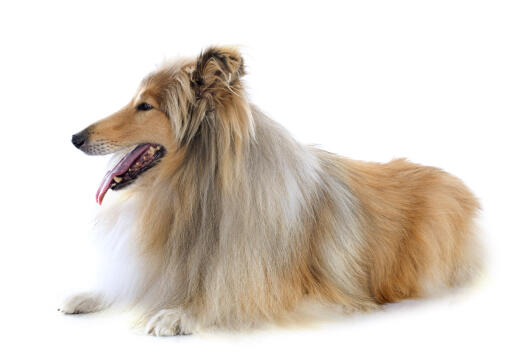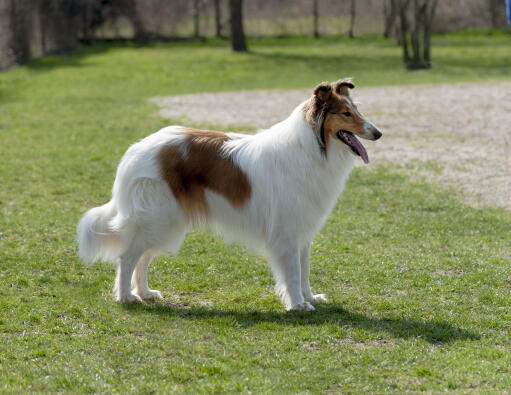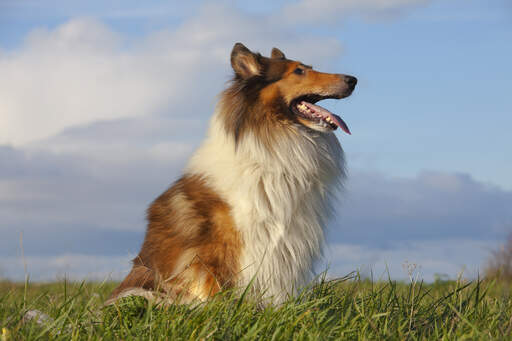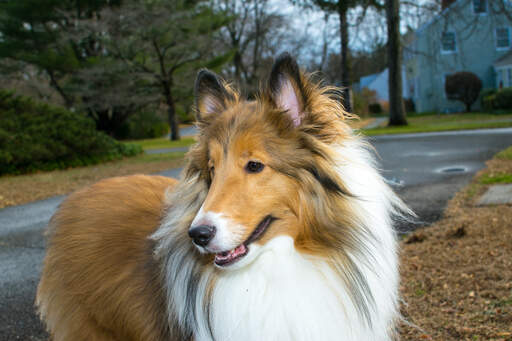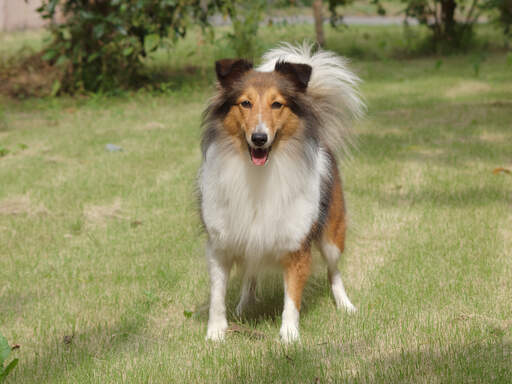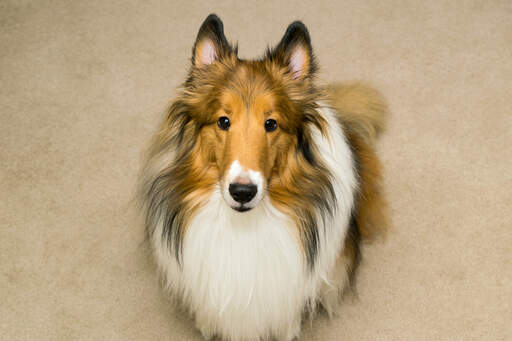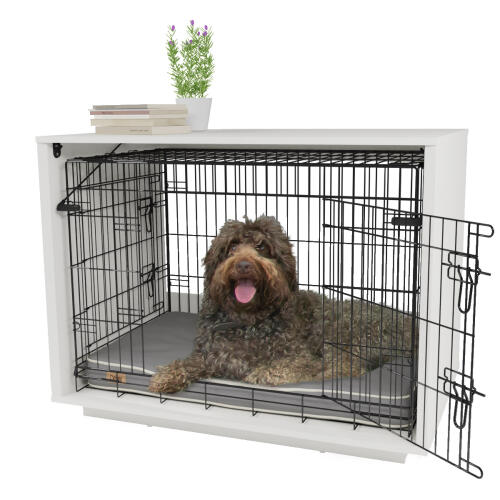Collie (Rough) Dogs










Breed Rating (1 Reviews)
| Appearance | |
| Friendliness | |
| Hardiness | |
| Garden |
History
The Rough Collie was first bred in Scotland and Wales to herd sheep and goats. The Scottish version was larger and a little more aggressive than the Welsh variety, as it had to deal with hardy Highland sheep, while the Welsh Collie was smaller and friendlier, dealing largely with goats. It was in the mid- 19th century that English breeders crossed the two types to produce the Collie familiar to us today. Their popularity was boosted with the popularity of the Lassie moves in the 1940s and 1950s, the breed soon became very popular. The first film in the series, Lassie Come Home, was based on a hugely popular novel of that name by English American author Eric Knight, which appeared in 1940. The name is thought to originate in the Colley sheep breed that the early Collies were herding.
The different Collies as we know them today were developed in the second half of the 19th century. Queen Victoria’s famous pet Collies, for example, were not the Rough, Smooth, or Border Collie as we know these breeds today, but an ancestral type. (Nowadays, it is the Border Collie that has carried on the sheep-herding tradition, and is indeed the archetypal sheep dog in Scotland, Wales and England today, and most working sheep dogs in those countries are of that breed.)
Behaviour
The Rough Collie is very intelligent dog, always alert (to the point of hyperactivity if they are not well trained). They get on very well with children and other dogs – and indeed other pets, including cats – as long as they are well socialised early on. They have to be taught not to nip heels and legs, a herding tactic that harks back to their origins as sheep dogs. They make good watch dogs and will bark when they sense that someone or something is approaching, or if anything is amiss in their households. Barking can become a problem if the dog is not strictly trained, and the “quiet” command needs to be firmly taught early on. Collies can be wary of strangers, but as they are not shy dogs, they may show aggression – something else that needs to be curbed through close training, otherwise they will have a lifelong problem with strangers.
Rough Collies are still essentially working dogs, even though they are seldom used for herding today, so they need to channel their energy into exercise, and need a firm hand when training. The fact that they are clever and willing to please helps in the training process. They pick things up quickly and enjoy interaction with their human trainer. They are good natured, but sensitive, meaning that they can easily become afraid. Praise and encouragement are the best training tools, and shouting and physical punishment should be completely avoided. Once they have learned what you want them to do, their very good memories ensure that the learning stays with them. They are of the easiest breeds to train, and excel in obedience, herding, and agility tests.
Collies need lots of exercise and space to run around and play in. A long walk is needed every day, off-leash so that they can run around freely. Their recall is excellent, once trained, and they are one of the best jogging partners for humans. Without a good long walk, they may be restless at home. Their long coats make them prone to overheating in the summer, so it is best to walk them in the early morning or early evening to prevent overheating.
Rough Collies’ long coats need brushing on a weekly basis to remove dead hair. They tend to make an effort to keep clean and avoid the muddy puddles beloved by certain dogs! They shed hair heavily twice a year, so more intensive brushing is needed at these times to prevent fur coating everything in the home.
Temperament
Collies - both rough and smooth have a sensitive and cheerful temperament. They are highly intelligent, friendly dogs who love to be your side. These can become noisy dogs - particularly if left alone for long periods of time. They desire companionship whether that be from humans or other dogs.
Health Problems
Collies were bred as working dogs, so they are hardy and rarely suffer health issues. However, possible issues include Collie Eye Anomaly (CEA, an inherited disorder that can lead to blindness), progressive retinal atrophy (PRA: degeneration of the retina which can also lead to blindness), Gastric Torsion (bloat), epilepsy, grey Collie syndrome (an immune disorder that is usually fatal in puppyhood), and Canine Hip Dysplasia.
Breed Details
- Status: Common
- Life Expectancy: 14 - 16 years
- Weight: 40 - 75 pounds
- Height: 22 - 26"
- Rare: No
- Coat: Long - Short
- Grooming Requirements: Everyday
- Town or Country: Either
- Minimum Home Size: Small House
- Minimum Garden Size: Small to Medium Garden
- Breed Type: Herding
- Size: Medium
- Energy Level: Medium
- Exercise Required: Up to 1 hour
Collie (Rough) Pictures
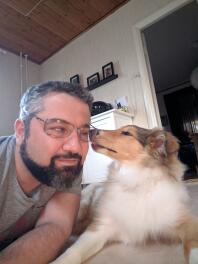
Latest Reviews For Collie (Rough) (1 of 1)
- Paula,
We have 3 rough collies and they are wonderful dogs, sensitive, loving and very intelligent. Recommended with children and as companions.

